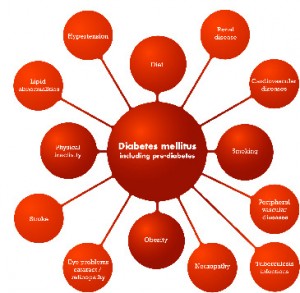
By Tolu Okitika
“It is time we changed the archaic conviction that only communicable diseases deserves urgent attention. Chronic diseases are no longer “white man’s diseases”. It is already here in Nigeria and it is time we pay attention.”
In 2010, over 200 children died from lead poisoning as a result of illegal artisanal gold mining operations in Zamfara state. Had the parents known better, they wouldn’t have resorted to malaria treatment merely because the kids exhibited the common symptoms- headache, nausea and weakness.
For over 3 decades in the Niger Delta, oil exploration activities have polluted the waters requiring a cleanup described by the UN as ‘the biggest and most expensive in history’. Yet, these waters remain the only source of drinking water in some of the communities and subsistence fishing is a major food supply. In Lagos, a city with a population of about 7 million, there are many reported cases of deaths as a result of carbon monoxide (CO) poisoning, where gasoline based generators are operated within overcrowded and poorly ventilated homes. The constant exposures to diesel exhaust fumes in traffic add to the high stress levels of the population. These sources of environmental pollution in Nigeria contribute to the increasing risk of chronic illnesses such as asthma, cancers and cardiovascular diseases.
Unfortunately, there is a dearth of reliable data on chronic disease morbidity and mortality in Nigeria because of inadequate research in these fields. Also, prevalence of misdiagnoses renders hospital records of little worth. Media focus on the global fight against infectious diseases particularly malaria and HIV, seem to obscure any ongoing intervention for prevention and management of chronic diseases. This seeming neglect of the growing incidence and prevalence of chronic diseases in Nigeria raises a lot of questions: Who is to blame? What is the government doing? Are our health care systems capable of managing these illnesses? How are health areas prioritized for international funding? What are Nigerian healthcare professionals doing to increase the awareness of chronic diseases especially among the rural populace?
In 2010, over 200 children died from lead poisoning as a result of illegal artisanal gold mining operations in Zamfara state. Had the parents known better, they wouldn’t have resorted to malaria treatment merely because the kids exhibited the common symptoms- headache, nausea and weakness. Last year, many of my friends who learned about my choice of pursuing an MPH program but with a concentration in environmental health reacted like I had sentenced myself to a future of career irrelevance, particularly if I intended to practice in Nigeria. In fairness, I can’t blame them. After all, choice of a career field or research interest for many health care professionals is mostly driven by availability of funding opportunities and institutional support. But these days, it seems most financial support particularly in Africa, focus mainly on infectious diseases -thanks to the Global Fund and the likes. Indeed, I do not undermine the importance of combating infectious diseases in Nigeria or Africa as a continent. 655, 000 recorded deaths among children from just malaria in one continent, surely calls for global unity in fighting against it. However, we cannot neglect chronic diseases that are projected by the World Health Organization to cause about 28 million deaths in Africa within a decade (2005-2015).
Providing solutions to such public health issues in Nigeria is complicated and requires restoration of several paralyzed systems that are often beyond the scope of the health sector. The need for reformation of the health care system, both in terms of infrastructure and expertise cannot be overemphasized. Community health centers with disease detection technologies are very essential as well as appealing incentives to retain medical practitioners who are being lost to developed countries in the infamous African brain drain. Regulatory agencies also need to intensify enforcement of stricter environmental standards.
Health risk communication and education initiatives that inform the public of the potential risks they face from exposure to certain pollutants is a feasible baseline approach to adopt. Risks of adverse health outcomes from environmental exposures, particularly chronic diseases, can be prevented by simple hierarchy of control practices either at the pollutant source or at individual or population exposure level. For example, banning manufacture of lead-based paints; recommending adequate ventilation in homes that operate gasoline or diesel generators; educating farmers on proper pesticide application and teaching individuals and health services providers on identification of early symptoms of chronic diseases are first and necessary steps in combatting these public health threats. It is time we changed the archaic conviction that only communicable diseases deserves urgent attention. Chronic diseases are no longer “white man’s diseases”. It is already here in Nigeria and it is time we pay attention.
[…] discussed was how environment sustainability affects the health outcomes of earth’s inhabitants. In this enlightening piece, Tolu Okitika writes about the upcoming non-communicable disease trend in Africa, especially […]